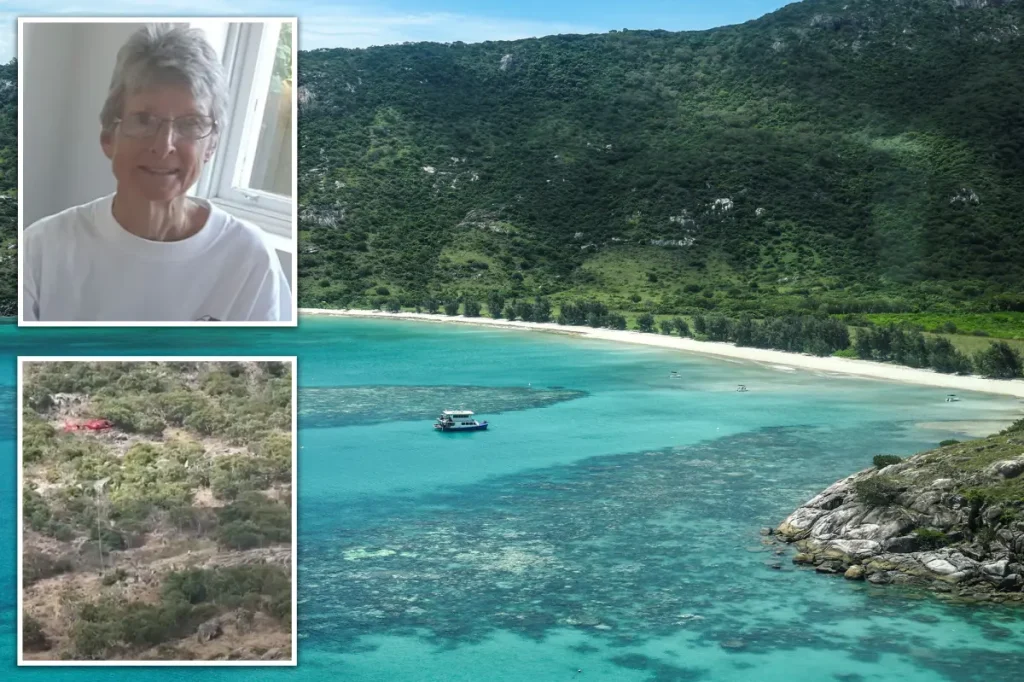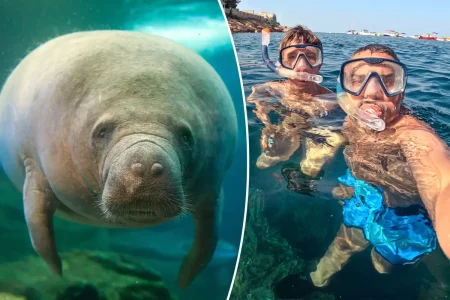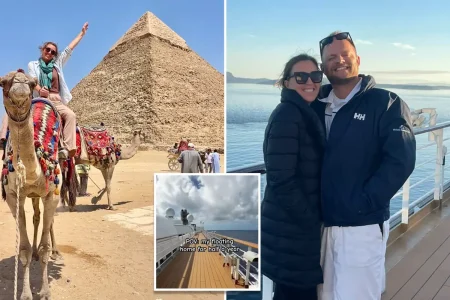Tragedy at Sea: The Lonely Death of Suzanne Rees on Lizard Island
In a heartbreaking incident that has raised serious questions about cruise ship safety protocols, 80-year-old Australian retiree Suzanne Rees died alone on Lizard Island after allegedly being left behind by the Coral Adventurer cruise ship. Ms. Rees, who was traveling solo on what should have been a dream 60-day circumnavigation of Australia costing over $52,000 USD, was reportedly not missed until hours after the ship had departed from the exclusive Far North Queensland destination on October 25. Her daughter, Katherine Rees, has spoken out about the tragedy, describing what appears to be “a failure of care and common sense” that resulted in her mother dying alone on the remote island. According to Katherine, police reported it was an extremely hot day when her mother fell ill during a group hike up a challenging trail. “She was asked to head down, unescorted,” Katherine told The Australian. “Then the ship left, apparently without doing a passenger count. At some stage in that sequence, or shortly after, Mom died, alone.” Katherine now hopes a coronial inquiry will determine what actions might have saved her mother’s life.
The circumstances surrounding Suzanne Rees’ death have left many baffled about how such a tragedy could occur in an industry known for strict passenger accounting measures. The incident began during an organized hiking and snorkeling excursion to Lizard Island, located 56 miles northeast of Cooktown. Ms. Rees was reportedly part of a group hiking the island’s highest summit, Cook’s Look, a challenging 2.5-mile trail described as appropriate only for those with “medium to high fitness and agility.” Sources told The Australian that Rees needed to stop during the hike, while “the group continued on and boarded the vessel before realizing she was not there.” Even more concerning, she wasn’t reported missing to authorities until approximately five hours later, around 6 p.m., when her absence was noticed at dinner time. By this point, Ms. Rees had reportedly fallen down a cliff. Once the alarm was raised, the Coral Adventurer turned around, dispatching seven crew members in a smaller boat to search the island with torches. A Nautilus Aviation helicopter eventually located her body the following day.
Industry experts have expressed astonishment at the apparent breakdown in passenger safety protocols. Adrian Tassone, a cruising expert interviewed on Australia’s Sunrise morning show, stated: “Cruise lines in normal sort of operation will always know who is on the ship and who is off the ship… I really can’t understand how that occurred.” He further explained that standard industry practice involves passengers scanning key cards when boarding and disembarking, creating a digital manifest of who is on and off the vessel at any time. This system seems especially manageable on a vessel like the Coral Adventurer, which carries a maximum of just 120 passengers and 46 crew members. “I struggle to understand how a headcount wasn’t conducted,” Tassone said, adding, “I am really surprised something more robust isn’t in place that should have prevented this from happening.” His comments reflect the wider disbelief within the cruise industry that such a fundamental safety failure could occur.
The tragedy has prompted an official investigation by Queensland Police, who are examining not only the circumstances of Ms. Rees’ death but also whether her life could have been saved with proper protocols and timely intervention. Early reports suggest that the woman was hiking the island’s summit when she became unwell in the hot conditions, was directed to return down the trail alone, and subsequently was not accounted for during the ship’s departure procedures. When cruise passengers embark on shore excursions, especially to remote locations like Lizard Island (situated about 1,000 miles northeast of Brisbane), cruise operators typically maintain stringent headcounts and buddy systems to ensure all guests return safely. The breakdown of these safeguards in Ms. Rees’ case raises profound concerns about the accountability measures in place for vulnerable travelers, particularly elderly passengers traveling alone on physically demanding excursions.
Mark Fifield, Chief Executive of Coral Expeditions, confirmed the “tragic death” in a statement, noting that the crew had notified authorities that a woman was missing, prompting a search and rescue operation on land and sea. “While investigations into the incident are continuing, we are deeply sorry that this has occurred and are offering our full support to the woman’s family,” Fifield stated. “The Coral team have been in contact with the woman’s family, and we will continue to offer support to them through this difficult process.” When questioned about whether Ms. Rees’ family would receive a refund of her substantial cruise fees, a company spokesman declined to comment on private conversations but reiterated they were “offering our full support to the woman’s family.” Coral Expeditions has stated they are cooperating fully with Queensland Police and other authorities in their investigation, though they are not providing additional comments while investigations remain underway.
For Katherine Rees and her family, the pain of losing their mother is compounded by the circumstances of her lonely death on a remote island. The poignant image of an elderly woman becoming ill in extreme heat, being directed to descend a challenging trail alone, and then being left behind as her cruise ship sailed away without her, paints a disturbing picture of neglect that demands accountability. Katherine’s hope for answers through a coronial inquest reflects the family’s need to understand exactly what happened to Suzanne and what measures might have prevented her death. As the investigation continues, this tragedy serves as a sobering reminder of the special duty of care that tour operators owe to their passengers, particularly the elderly and those traveling alone. For the cruise industry as a whole, Ms. Rees’ death should prompt a critical reexamination of safety protocols to ensure that no other passenger is ever left behind, forgotten, and alone when they need help the most.













